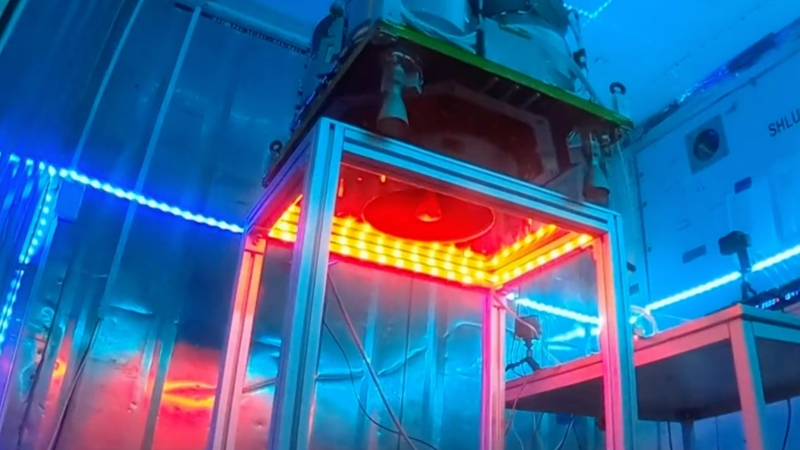Asteroid Mining Startup Runs Into Trouble in First Mission

AstroForge’s spacecraft undergoing a hot fire test before launch.
Since launching its first test mission to vaporize bits of an asteroid in space, AstroForge has struggled to keep a hold of its spacecraft and is now at risk of losing the ability to send commands to the in-orbit demonstration.
The California-based AstroForge has big plans: mining asteroids for platinum and processing the materials in space before selling them on Earth for lucrative profit. The company’s demonstration mission, however, has had a series of issues since launch, proving once again that space is, like, really hard.
Read more
GM Says It's Dropping Apple CarPlay And Android Auto Because They're Unsafe
Watch A Cybertruck Fail To Negotiate Minor, Snowy Incline, Get Recovered By Ford Super Duty
Brokkr-1 satellite launched while preloaded with asteroid-like material that the refinery spacecraft will attempt to vaporize before sorting the material into elemental compounds. The company now has about three months to complete its refinery checkouts and demonstrate the satellite technology before it loses the ability to send commands to the spacecraft altogether.
AstroForge is moving ahead with its second mission, which will launch in 2024 with the objective of pulling off a flyby of an asteroid and taking high-resolution images of it surface. “Demo missions like Brokkr-1 are like the months of practice leading up to a big game,” AstroForge wrote. “In our case, Brokkr-1 was the practice and the big game is our upcoming deep space mission.”
For startups like AstroForge, asteroid mining represents the potential for massive profit, if they can find a way to extract precious resources that are hard to come by on Earth. Platinum, for example, is valued at almost $15,000 per pound. As to whether asteroid mining will actually be worth all the effort, well, that remains to be proven.
For more spaceflight in your life, follow us on X (formerly Twitter) and bookmark Gizmodo’s dedicated Spaceflight page.
More from Gizmodo
R.I.P. Andre Braugher, star of Homicide: Life On The Street and Brooklyn Nine-Nine
Netflix released actual viewership data, and apparently everybody watched The Night Agent
A Decade Later, GTA Online Finally Has Animals Running Around
Tommy DeVito, Daniel Jones and the stupidity of the New York Giants’ QB room
What Car Setting Has No Business Being Controlled Through A Touchscreen?
Sign up for Gizmodo's Newsletter. For the latest news, Facebook, Twitter and Instagram.

